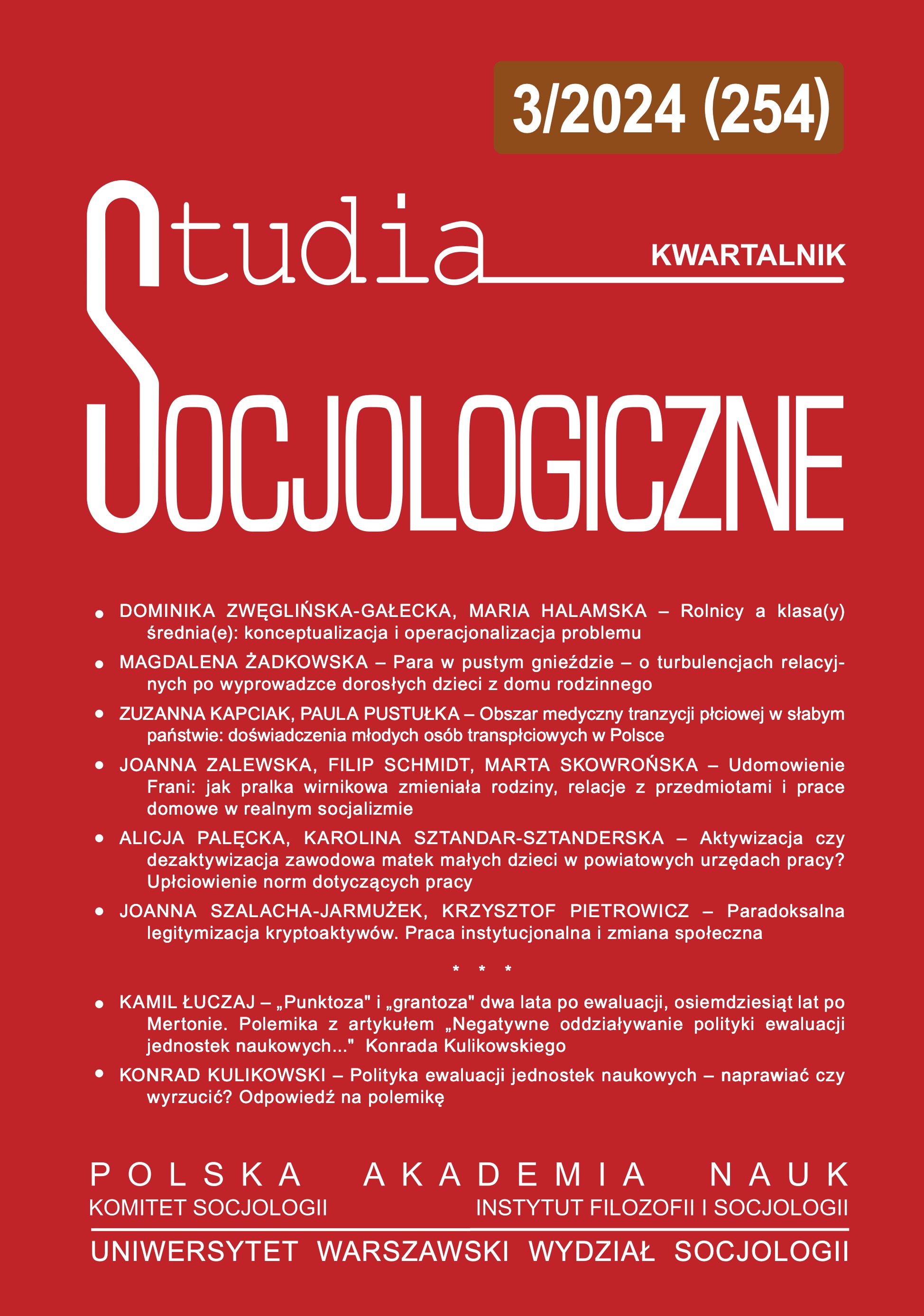Udomowienie Frani: jak pralka wirnikowa zmieniała rodziny, relacje z przedmiotami i prace domowe w realnym socjalizmie
Domesticating “Frania”: How the Rotary Washing Machine Changed Families, Relationships with Objects, and Housework under Real Socialism
Author(s): Joanna Zalewska, Filip Schmidt, Marta SkowrońskaSubject(s): Social Sciences, Sociology
Published by: Instytut Filozofii i Socjologii Polskiej Akademii Nauk
Keywords: gender; real socialism; washing machine; domestication of technology; progress
Summary/Abstract: This article aims to test the theory of technology domestication in socialist economy and explore the relationship between the domestication of technology and the division of housework. Using historical data and conducting in-depth dyadic and individual interviews, we examine the domestication of the rotary washing machine in Polish cities. The domestication of rotary washing machine in a socialist state differs from the technology domestication in capitalist market economies. In the initial stage, the mere availability of a washing machine was an incentive to obtain one, due to the discourse of progress and the scarcity economy. The final stage was expanded due to the scarcity economy and the renaturalization of consumption. The physically demanding nature of laundry with “Frania” machine facilitated a “family celebration” of the laundry and involved men’s active participation, whereas the prevalence of automatic washing machines shifted this activity primarily to women.
Journal: Studia Socjologiczne
- Issue Year: 254/2024
- Issue No: 3
- Page Range: 87-116
- Page Count: 30
- Language: Polish

